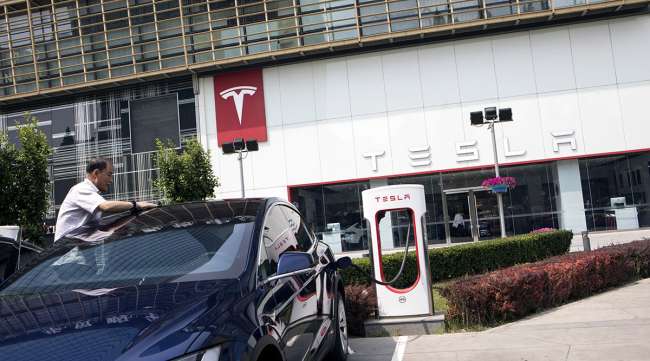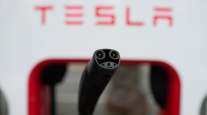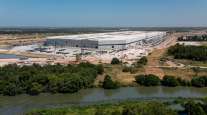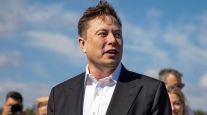Tesla Gets Exemption From China’s 10% Tax on Car Sales

[Stay on top of transportation news: Get TTNews in your inbox.]
Tesla Inc. won exemption from a 10% Chinese tax on automotive sales, sidestepping trade tensions with the U.S. following CEO Elon Musk’s visit to the country.
The exemption, which typically is reserved for domestic makers of electric vehicles, affects all Tesla models sold in China, the nation’s industry ministry said Aug. 30 on its website. The electric carmaker’s shares jumped as much as 4.8% shortly after the opening of regular trading.
China’s concession to one of America’s most high-profile companies comes amid heightened uncertainty as to where the trade war between the two countries is headed. A week ago, President Donald Trump ordered U.S. companies to immediately begin looking for alternatives to China, only to later suggest that tensions were cooling.
The exemption also sends a signal that the Chinese auto market, the world’s biggest, is open to competition, said Yale Zhang, managing director of AutoForesight, a Shanghai-based auto consultancy.
“It clearly shows the state’s attitude in introducing a strong competitor” in new-energy vehicles, Zhang said. “For those domestic EV makers, now if you don’t run fast enough, you’ll be beaten up.”
During a two-day visit, Musk made an appearance at the World Artificial Intelligence Conference in Shanghai, debating Alibaba Group Chairman Jack Ma onstage. He also spoke with local authorities and toured a new gigafactory being built about 70 kilometers away from the city center. That was followed by a meeting with China’s Minister of Transportation, Li Xiaopeng, on Aug. 30 in Beijing, according to government news reports.
A Tesla spokesperson didn’t respond to a request for comment. The stock’s rise to as high as $232.44 on Friday was the biggest intraday jump since July 3.
The sales-tax reprieve could partially offset retaliatory tariffs that may be put on Teslas and other U.S.-built cars later this year. China announced last week that it would increase tariffs on American autos by 25 percentage points to 40% on Dec. 15, in reaction to new levies the Trump administration plans on Chinese exports. Analysts at Evercore ISI estimate that Tesla will incur $620 million in incremental cost if the higher duties are imposed.
Tesla currently imports all of the cars it sells in China but plans to make the Model 3, its best-selling vehicle, at the new plant starting late this year. The company on Friday raised prices in China as trade tensions weigh on the country’s currency.
The price of a basic level imported Model 3 sedan went up more than 2% to 363,900 yuan ($50,900), Tesla’s website showed Friday. Base prices for Model S sedans and Model X sport utility vehicles increased by a similar percentage, to 793,900 yuan and 809,900 yuan, respectively.




